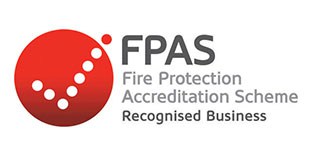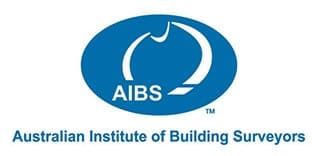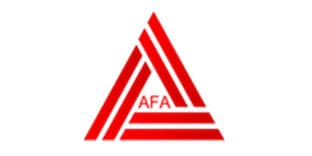Why choose a deluge fire suppression system for your building
Deluge fire suppression systems are excellent alternatives to systems that involve traditional automatic sprinklers. They are designed to blanket entire areas with large volumes of water in a short space of time which makes them excellent for smothering flames quickly, which means that they have unique uses that traditional automatic sprinklers can’t fulfil.

How is a Deluge Fire Suppression System Different?
The most significant difference that a deluge system has from other sprinkler systems is dry piping. The pipe system is empty until the system is triggered, so all water is stored behind the valve, away from the pipe. When the system is tripped, the valve releases the water into the pipes and sprinklers then release this water to smother the flames. Deluge systems have some key differences from other types of fire safety systems, including:
- Pressure
- Extinguishing substance
- Pipe contents
- Detection system
- Water release
Pressure
Deluge systems typically do not keep the pipes at a higher pressure. This is different from other pressurised systems that keep compressed air in the pipes.
Extinguishing Substance
Deluge systems can use a combination of water, fire retardants and other chemicals. Many other systems use only water.
Pipe Contents
The pipes in a deluge system are kept dry as water is stored behind the valve.
Detection System
Other systems usually have heat-activated automatic sprinklers. On the other hand, deluge systems have detection systems separate from the sprinklers and nozzles themselves.
Water release
These systems have sprinkler heads that are specially designed to allow large volumes of water to exit. Also, the activation of the sprinklers is usually synchronised. That means all sprinklers release water at the same time.

Where are Deluge Systems Best Applied?
Due to their unique features, deluge suppressors are particularly effective in certain types of buildings. Among the best places to install these are:
- Buildings with combustible chemicals
- Areas where flames can spread quickly
- Places with equipment that need immediate cooling
Buildings with Combustible Chemicals
Combustible chemicals can catch flame even with the slightest sign of heat. What’s more, these can cause flames to spread rather quickly. Buildings that carry these chemicals in large amounts need to be extra mindful regarding fire safety precautions. These include chemical plants, factories, power plants, hangars, among others. As such, deluge suppression systems are their best choice since these prevent fire incidents from escalating.
Areas Where Flames Can Spread Quickly
Flames can spread quickly through wood, paper, combustible dust, flour, and oil. So generally, any area that has these in significant amounts should be extra careful about fire safety. Warehouses, workshops, industrial-scale kitchens, and automotive showrooms are some examples of these places.
Places with Equipment That Needs Immediate Cooling
Some equipment can easily be damaged by heat even if they do not directly combust, so places with these types of equipment need deluge systems to cool them down quickly, including places like server rooms, warehouses, or any building that stores electronic data.

How Are Deluge Systems Activated?
Typically, other suppression systems have heat or smoke detectors close to or within the sprinklers themselves – when a hazard is detected, the detector will activate the system and release water that is also usually just released within the vicinity of the heat or smoke.
Deluge systems have a different activation mechanism compared to traditional fire suppression systems. These are the usual steps for activation:
Detection
Deluge systems have detectors, usually electric, that are strategically scattered in an area. This sends a signal to the system’s main control panel to take action.
Response
Once the main system panel receives the hazard signal, it sends another signal to the water valves. Also, these panels are capable of sending signals to local fire stations. When a hazard is detected, these local fire stations are alerted immediately.
Fire Suppression
The valves open, and this allows water to flood the piping system. All open nozzles and sprinklers immediately release a large volume of water to suppress the flames.
Manual Operation
Most deluge systems can operate manually: If a fire is present but the threat has not been detected, the user can release water manually. The system can also stop if the user wishes to.

Are There Any Other Advantages to a Deluge System?
There are several reasons why a deluge system is more usable in certain situations. Some of the most important advantages include the following:
- Minimising Water Damage
- Smothering Flames Quickly
- Covering Large Areas
- No Freezing Pipes
Minimising Water Damage
Pipe leaks can damage wood, electronic equipment, or paper-based documents. As such, minimising pipe leaks should be prioritised.
Since deluge systems keep pipes empty unless needed, there are minimal chances of leaks occurring. This system is one big way of minimising water damage through leaks.
Smothering Flames Quickly
Since water output is much higher in deluge systems, flames are put out much more quickly. This effectively helps prevent the fires from spreading and can help cool down areas at once.
Covering Large Areas
Unlike in traditional sprinkler systems, water output for deluge systems is over a large area. Nozzles and sprinklers are activated all at once, allowing water to blanket an entire place. This is effective in smothering fires that spread quickly.
No Freezing Pipes
Since the water isn’t stored within the pipes themselves, there’s no risk of pipes freezing in cold temperatures. This makes a deluge suppression system effective during winter or for use in refrigeration and cold storage systems, so that fire safety isn’t compromised no matter what the temperature is.
Deluge Systems are Ideal in Ensuring Fire Safety
Now that you know how a deluge system works and you’re aware of all its advantages, why not have this system installed?
If you have a building that can benefit from a deluge fire suppression system, we encourage you to contact a trusted company for the installation job. Go for one that’s experienced and well-versed in deluge systems, such as Redmen Fire Protection Management.
If you’re interested in having a superior fire suppression system installed in your building for the safety of all occupants, learn more about us here, contact us on 1300 733 636 or email us at for enquiries.




